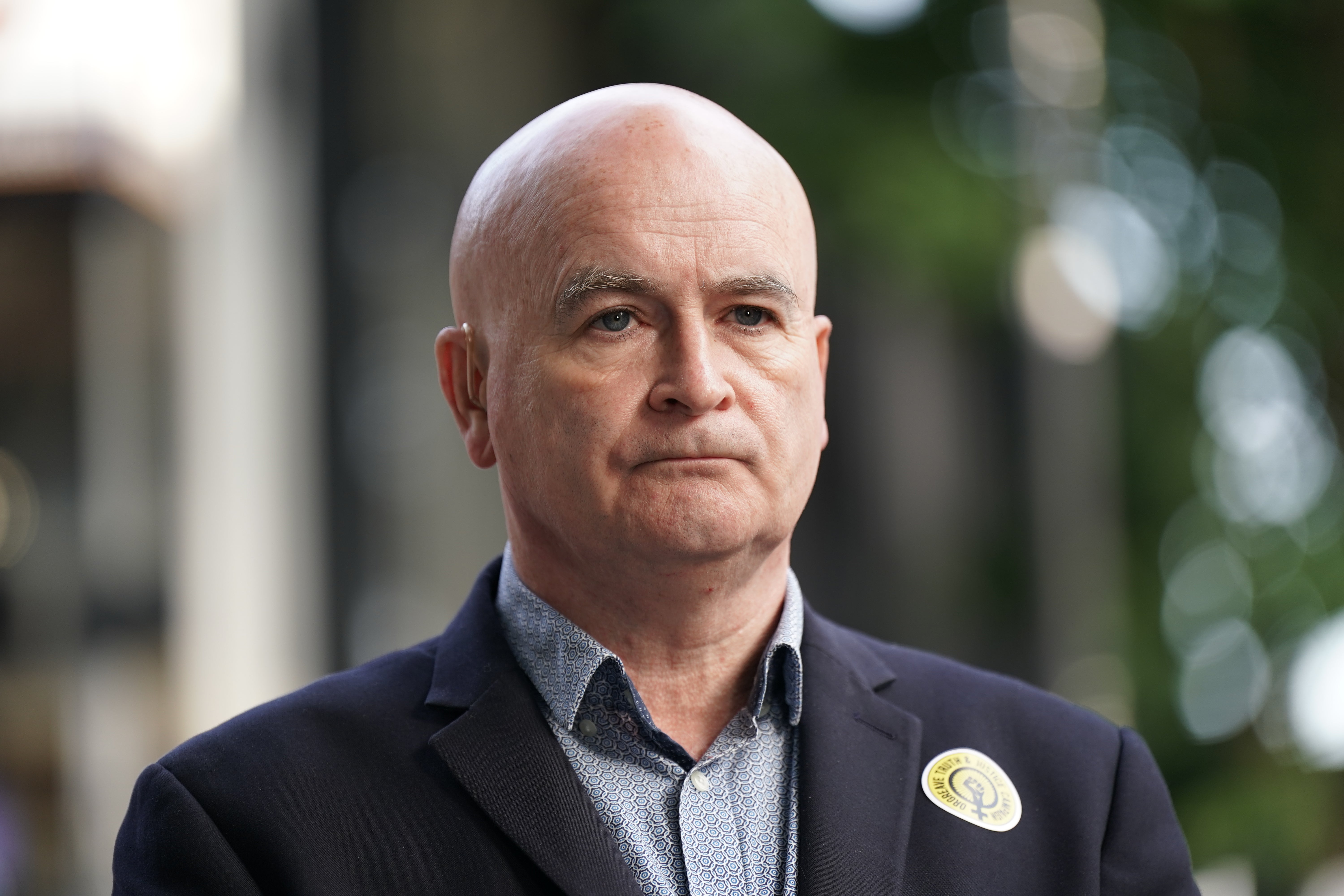RMT boss calls for general strike if Liz Truss targets unions as Prime Minister
Mick Lynch, general secretary of the Rail, Maritime and Transport union, said “coordinated and synchronised industrial action” may be needed.

Your support helps us to tell the story
From reproductive rights to climate change to Big Tech, The Independent is on the ground when the story is developing. Whether it's investigating the financials of Elon Musk's pro-Trump PAC or producing our latest documentary, 'The A Word', which shines a light on the American women fighting for reproductive rights, we know how important it is to parse out the facts from the messaging.
At such a critical moment in US history, we need reporters on the ground. Your donation allows us to keep sending journalists to speak to both sides of the story.
The Independent is trusted by Americans across the entire political spectrum. And unlike many other quality news outlets, we choose not to lock Americans out of our reporting and analysis with paywalls. We believe quality journalism should be available to everyone, paid for by those who can afford it.
Your support makes all the difference.A union boss has called for a general strike if Liz Truss becomes Prime Minister and brings in legislation to halt strikes affecting the country.
The Foreign Secretary has pledged to ensure “militant action” from trade unions can no longer “paralyse” the economy if she wins the Tory leadership contest.
Mick Lynch, general secretary of the Rail, Maritime and Transport (RMT) union, said “coordinated and synchronised industrial action” would be needed if legislation is brought in.
He went on to say the “very dangerous situation” risks taking the country back to “Victorian times”.
The comments came as strikes by members of the RMT and Transport Salaried Staffs Association crippled services on Wednesday, with only around one in five trains running and some areas having none at all.
Meanwhile, Aslef announced its members will walk out on Saturday August 13, saying train firms failed to make a pay offer to help members keep pace with increases in the cost of living.
A general strike, which can only be called by the Trades Union Congress (TUC), is when a “substantial proportion” of workers in multiple sectors refuse to work until their demands, usually around pay and working conditions, are met.
Mr Lynch told the i newspaper: “There is a whole host of measures that she (Ms Truss) is looking to bring in that will make it virtually impossible to have effective trade unionism and we think would effectively outlaw collective action.
“I think that’s a turn to the extreme right on behalf of the Conservatives, and they’re playing to their reactionary base. I think there will be an enormous response from the trade union movement.
“Only the TUC can call a general strike, we will be campaigning in that direction, but we need coordinated and synchronised industrial action against what they’re proposing.
“I would be looking for a general strike if we can bring that off, but it’s up to others. We’re a small union compared to others. So we’ll have to see where that goes.”
Ms Truss has said her government would introduce legislation in the first 30 days of Parliament to guarantee a minimum level of service on vital national infrastructure.
She would also ensure strike action has significant support from union members by raising the minimum threshold for voting in favour of strike action from 40% to 50%.
The minimum notice period for strike action would be raised from two weeks to four weeks, and a cooling-off period would be implemented so that unions can no longer strike as many times as they like in the six-month period after a ballot.
Asked what she would do about the rail strikes, the Foreign Secretary told Sky News: “I would legislate to make sure that there are essential services on our railway.
“It is completely wrong that the travelling public are being held ransom by militant unions. We can’t allow that to happen. We need to make sure our essential services run.
“As I said, I am on the side of people who work hard, who go into work, who want to run their businesses. We can’t see them hampered by the activities of these militant unions.”